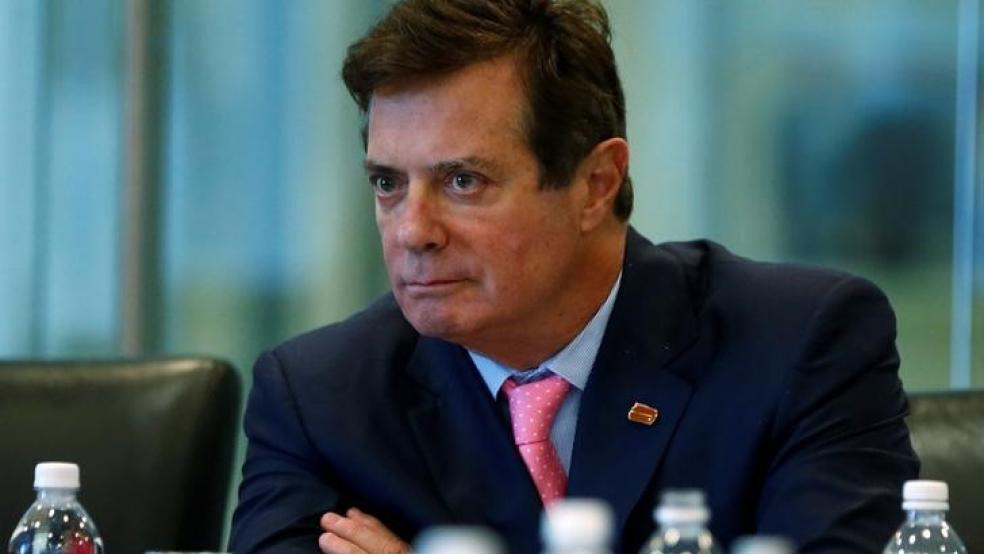Donald Trump has pledged to become “more presidential” as his effort to win the White House transitions into the general election. But it’s not completely clear that the presumptive Republican presidential nominee understands that being presidential means a whole lot more than not hurling insults.
It also means weighing the impact of your words before floating an idea in public the way Trump did yesterday in an interview with the financial news channel CNBC.
Related: GOP Chief -- This Isn’t Donald Trump’s Party
In part of a conversation about fiscal and monetary policy, Trump proposed that the US could reduce its national debt by pressuring creditors to accept less than full payment on Treasury securities.
“We’re paying a very low interest rate,” Trump said of the current debt load. “What happens if that interest rate goes two, three, four points up? We don’t have a country. I mean, if you look at the numbers, they’re staggering.”
However, he said that he would still use the debt markets to finance the government. “I would borrow, knowing that if the economy crashed, you could make a deal...And if the economy was good, it was good. So, therefore, you can’t lose.”
To clarify, Trump is suggesting that the US Treasury threaten to renege on its promise to pay investors the full amount they are owed on the bills, notes and bonds the government sells when it issues or rolls over its debts.
Related: Why People Are Worried About Donald Trump Learning State Secrets
This is an inexpressibly awful idea, and the fact that it came out of the mouth of a man who looks to be a major party presidential candidate is really amazing in at least two major ways.
First is the ignorance it implies about how the debt markets work. US Treasury securities are the closest thing in the world to a risk-free asset. The assumption that the Treasury Department will pay its obligations on time and in full is precisely why the United States can borrow at extremely low rates, and is why they make up part of investment portfolios around the globe.
Whether the US could cut down on its debt by strong-arming creditors at all when they have no incentive to agree to a deal is doubtful at best. Is Trump going to take the US government into Chapter 11? Not really an option.
Even if Trump could force investors to accept less than 100 percent of what they are owed, the results would not be some sort of fiscal nirvana for the country. A demand by the US Treasury that its investors take a haircut on US securities would be a massive disruption to the markets, injecting uncertainty into one of the rare corners of near-absolute certainty in investing.
Related: The Battle Between Donald Trump and Paul Ryan Was Inevitable
Uncertainty implies risk, and risk demands reward, and the next thing President Trump would find out is that those low interest rates he was talking about have been replaced by higher ones -- much higher ones -- and that rolling over existing debt and issuing new debt to investors who no longer think the “full faith and credit” of the United States is worth very much just became vastly more expensive.
That touches on the second amazing thing about Trump’s comments: he made them aloud and on television.
Consider for a moment what would happen if President Obama, in an interview, let slip that his administration was considering a debt reduction strategy that involved stiffing the country’s creditors. The reaction in the bond markets would be immediate and furious, with Treasury securities being sold off at a steep discount as the rate on new issues would skyrocket. And that’s all without him making a single concrete move to put the plan into action.
Politicians are often criticized for appearing too scripted or reserved -- in fact, his willingness to say almost anything is a big part of Trump’s appeal to many of his voters. But in many cases, there is a reason why politicians, particularly those in positions of power and influence, don’t just spit out whatever ideas pop into their heads: It can have consequences.
Related: Hillary Clinton Is the GOP’s Dream Opponent, but Trump Is Its Nightmare
It may suggest something about what the markets believe about Trump’s chances of actually becoming president that there was no appreciable reaction to his proposal yesterday. But as the general election approaches and he starts being taken seriously as a candidate for president, his words will start to carry a lot more weight.
It would probably be a good thing for the country if someone in the Trump organization took the candidate aside and explained that being “presidential” extends well beyond avoiding schoolyard taunts to more complex matters, like thinking through the implications of a policy position before floating it on live television.





